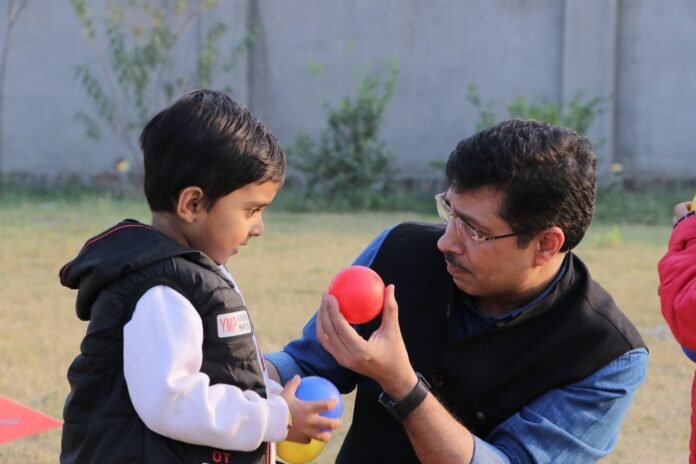Applied Behavioral Analysis (ABA) is a therapeutic approach widely recognized for its effectiveness in treating Autism Spectrum Disorder (ASD). Rooted in the principles of behaviorism, ABA focuses on understanding and modifying behaviors through systematic techniques. It aims to improve socially significant behaviors, such as communication, social skills, and academic performance, making it a cornerstone in the treatment of ASD.
Ideology Behind ABA
The ideology of ABA is based on the understanding that behaviors are learned and can be changed through environmental modifications and reinforcement strategies. ABA therapists believe that by observing and analyzing the antecedents (what happens before a behavior) and consequences (what happens after a behavior), they can identify patterns and develop interventions to encourage desirable behaviors and reduce undesirable ones.
Core Features of ABA
- Individualized Treatment: ABA is highly individualized, meaning each program is tailored to meet the specific needs of the individual. Therapists conduct a detailed assessment to understand the child’s unique strengths, weaknesses, and areas that need improvement.
- Data-driven: ABA relies heavily on data collection and analysis. Continuous monitoring of progress helps therapists make informed decisions about the effectiveness of interventions and make necessary adjustments.
- Positive Reinforcement: One of the key principles of ABA is the use of positive reinforcement. By rewarding desirable behaviors, ABA encourages the repetition of those behaviors.
- Skill Development: ABA focuses on teaching new skills and behaviors. These can range from basic skills, like eye contact and following instructions, to more complex skills, such as social interactions and academic tasks.
Principles of ABA
1. Positive Reinforcement: This principle involves providing a reward to encourage desirable behavior. For example, a child might receive praise or a favorite toy for completing a task, which increases the likelihood of the behavior being repeated.
2. Extinction: This principle involves withholding reinforcement for a previously reinforced behavior, leading to a decrease in that behavior over time. For instance, if a child throws tantrums to get attention and the attention is consistently withheld, the tantrums are likely to decrease.
3. Prompting and Fading: Prompts are used to guide the child towards the desired behavior. Over time, these prompts are gradually faded to encourage independent performance. This might involve initially providing a lot of assistance and then slowly reducing the help as the child becomes more competent.
4. Generalization: ABA emphasizes the importance of applying learned behaviors across different settings and situations. This ensures that skills are not only used in the therapy room but also in real-life scenarios, such as at home or in school.
5. Shaping: This involves reinforcing successive approximations of a target behavior. In other words, small steps toward the desired behavior are reinforced until the final behavior is achieved. For example, if teaching a child to say a word, initial reinforcement might be given for making any sound, then for making sounds that resemble the word, and finally for saying the word correctly.
Role of ABA in ASD
ABA has been extensively researched and is considered one of the most effective treatments for ASD. It helps children with autism develop essential life skills, improve communication, enhance social interactions, and reduce challenging behaviors. Some of the key benefits of ABA for children with ASD include:
- Communication Skills: ABA helps children develop both verbal and non-verbal communication skills, enabling them to express their needs and interact with others more effectively.
- Social Skills: Through structured interventions, ABA teaches children how to engage in social interactions, understand social cues, and build relationships.
- Behavioral Management: ABA techniques help in reducing challenging behaviors such as aggression, self-injury, and tantrums by teaching alternative, appropriate behaviors.
- Academic Achievement: ABA supports academic skills by breaking down tasks into manageable steps and using reinforcement to encourage learning and retention.
- Daily Living Skills: ABA helps children become more independent by teaching skills such as dressing, eating, and personal hygiene.
Conclusion
Applied Behavioral Analysis is a scientifically validated approach that offers a structured and effective method for treating Autism Spectrum Disorder. Its emphasis on individualized treatment, data-driven decision-making, and positive reinforcement makes it a powerful tool for helping children with ASD achieve their full potential. By focusing on skill development and behavior modification, ABA plays a crucial role in improving the quality of life for children with autism and their families. Autism doctor in ludhiana, autism center in ludhiana, autism doctor.
Other Details:
Dr. Atul Madaan (Autism Specialist)
MAAP, MBA, MPhil (Clin. Psy), PhD (Psy)
Operational Head & Clinical Psychologist- Care For Autism (CFA)
Call now – +918383849217,+919779725400
URL: www.autismspecialist.co.in
𝐂𝐀𝐑𝐄 𝐅𝐎𝐑 𝐀𝐔𝐓𝐈𝐒𝐌 (CFA)
One-of-a-Kind Assessment & Remedial Training Centres for Special-needs Children.
📌 Ludhiana : 114, Green Field, Kochar Market Road, Near National Lab,+919646443200
📌 Jalandhar : Hoshiarpur Road, Mubarkpur Shekhein Under Bridge, Near Railway Crossing, +919779725400
Care For Autism (CFA) in Ludhiana, led by Dr. Atul Madaan, a renowned Child Psychologist and Autism Specialist, offers comprehensive services as a leading Autism Center and Child Doctor in Ludhiana. CFA provides vital therapies including ABA, OT, Speech Therapy, and Special Education, ensuring holistic care under one roof. With a team of expert ABA Therapists and Psychologists, CFA emphasizes parental training for consistent home support. Dedicated to excellence, CFA stands as a beacon for families seeking specialized autism care in Ludhiana, offering hope and professional support through its comprehensive programs and compassionate approach.


